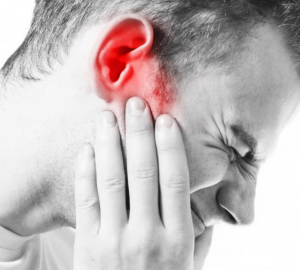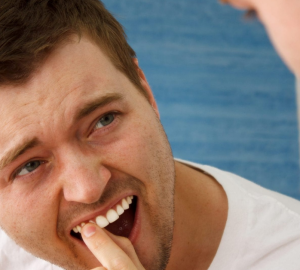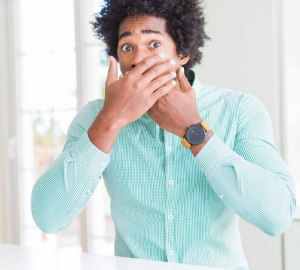Anxiety is part of life — we all feel it every once in a while. When you do, there are so many things you can try to help calm your emotions. If you feel anxious frequently and nothing seems to help, talk with your doctor about other methods to manage it.
Some anxiety is an ordinary element of life. It’s a byproduct of living in an often-disorderly world. Anxiety isn’t all bad, however. It makes you alert of danger, encourages you to stay systematic and prepared, and helps you reckon risks. Still, when anxiety becomes a day-to-day effort, which means it’s time to perform before it snowballs. Unbridled anxiety may highly impact your features of life. Take control by trying out the thoughts below.
What is an Anxiety Disorder?
The intensity of indication and a person’s skills to manage separate day-to-day worries or anxious moments from anxiety illness.
National surveys estimate almost one in five Americans over 18, and one in three teenagers 13 to 18, had an anxiety disorder throughout the last year.
If anxiety is constant, immoderate, or routinely activated by situations that aren’t a real threat, tell your doctor, who can examine treatment choices or concern you to a skilled mental health professional. Otherwise, there are many home remedies for anxiety.
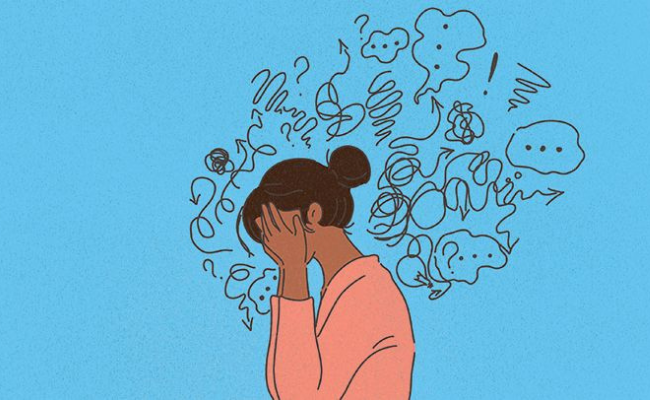
Types of Anxiety Disorders
There are various types of anxiety disorders, these contain:
Agoraphobia
The person who has agoraphobia has a fear of particular locations or situations that make them feel trapped, helpless, or ashamed. These feelings lead to panic attacks. People who have an extreme fear of open places may try to escape these places and situations to avoid panic attacks.
Generalized Anxiety Disorder (GAD)
People with Generalized anxiety disorder experience continuous anxiety and disturb about action or events, even those that are usual or routine. The worry is more than it should be given the reality of the condition. The worry induces physical indications in the body, like headaches, stomach upset, or trouble sleeping.
Obsessive-Compulsive Disorder (OCD)
OCD is the constant experience of undesirable or obtrusive minds and worries that cause anxiety. A person may know these thoughts are unimportant, but they will try to ease their anxiety by performing particular ceremonies or behaviors. This may contain hand washing, counting, or checking on things like whether or not they’ve locked up their house.
Panic Disorder
Panic disorder causes immediate and frequent contests of severe anxiety, concern, or terror that summit in just a matter of time. This is recognized as a panic attack. Those facing a panic attack may experience:
- Feelings of impending danger.
- Deficiency of breath.
- Chest pain.
- The speedy or unusual heartbeat that feels like fluttering or pounding.
Panic attacks can lead one to worry about them happening again or try to prevent situations in which they’ve previously taken place.
What are the Symptoms of Anxiety?
While anxiety symptoms differ from human to human, in usual the body responds in a very definite way to anxiety. When you feel anxious, your body goes on high gear, searching for possible danger and activating your fight or flight responses. As a consequence, some common symptoms of anxiety include:
- Nervousness, impatience, or being worried
- Feelings of danger, panic, or apprehension
- Weakness and inactivity
- Problem on focusing or reflecting clearly about anything other than the thing you’re anxious about
- Insomnia
- Digestive or gastrointestinal issues, like gas, constipation, or diarrhea
- A strong desire to prevent the things that spark off your anxiety
- Delusions about definite ideas, an indication of OCD
- Carrying out certain behaviors over and over again
- Fast heart rate
- Fast breathing, or hyperventilation
- Increased or weighty sweating
- Quivering or muscle twitching
- Anxiety encompassing a particular life event or experience that has taken place in the past, specifically expressive of post-traumatic stress disorder (PTSD)
Home Remedies for Anxiety
Start Deep-Breathing
If you’re not concentrated on how to tranquil your body through slow, deliberate belly-breathing, you’re missing out. Belly-breathing is free, location self-supporting, easy to execute, and one of the best home remedies for anxiety. Here’s how to get started:
- Sit with your eyes closed and turn your focus to your breathing. Breathe naturally, ideally through the nasal passages, excluding attempting to control your breath.
- Be conscious of the feeling of the breath as it walks into and leaves the nostrils. Spot one hand on your stomach, while the other hand on your chest. Take a full breath for a count of five. Control your breath for a count of four. Breathe out for a count of four. The hand on your belly should go in as you breathe in, and move out as you breathe out.
- Focus on your breath and forget all the rest. Your mind will be extremely busy, and you may even feel that the meditation is keeping your mind busier, but the fact is you’re just becoming more conscious of how busy your mind is.
- Deny the enticement to follow the several thoughts as they develop, and concentrate on the sensation of the breath. If you find out that your mind has drifted and is following your thoughts, right away return it to the breath.
- Reiterate this as numerous times as essential until your mind settles down on the breath. Don’t wait to begin belly-breathing. The sooner you make this a routine habit, the faster you’ll feel relaxed.
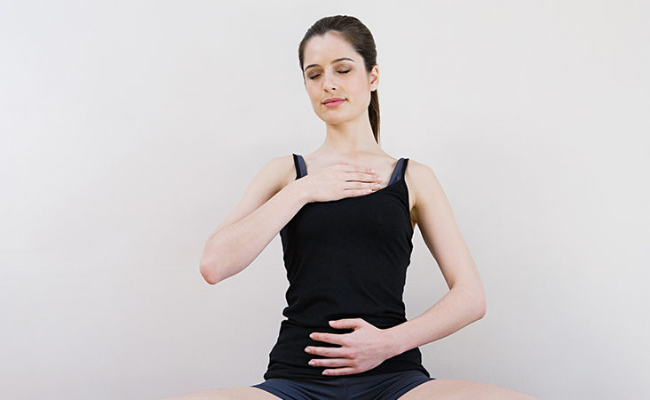
When you apply belly breathing, you start the day in a here-and-now condition. Better still, you’re not wasting time worrying about the future or reliving the past.
Stay Active
You don’t have to prepare for the Olympics, just a 10-minute walk can do the trick just as a 45-minute regular workout. Either can have you feel better for a few hours, like aspirin for a headache. And if you work out consistently at least 3 times a week, you’re less likely to feel anxious in the first place.
Routine exercise is best for your physical and emotional health. Ordinary exercise works as well as medication to relieve anxiety for many people. And it’s not just a temporary fix; you may feel anxiety relief for hours after doing exercise.
Don’t Drink Alcohol
Alcohol is a natural sleeping pill. Drinking a glass of wine or a finger of whiskey when your nervousness is shot may calm you at first. Once the thrill is over, though, anxiety may return with a revenge. If you depend on alcohol to relieve anxiety in place of treating the root of the issue, you may develop an alcohol addiction.
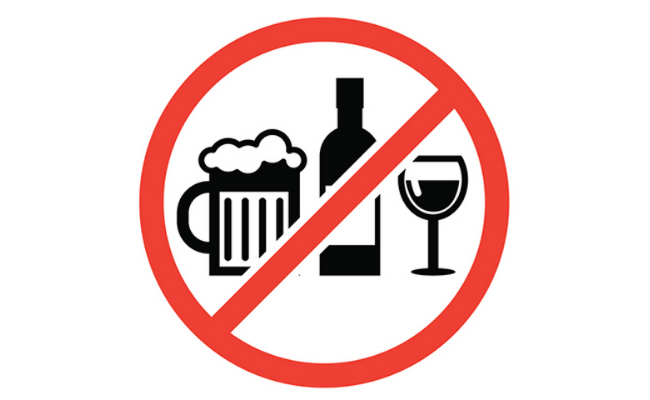
Stop Smoking
Smokers frequently reach for a cigarette during nerve-racking times. Still, like drinking alcohol, taking a drag on a cigarette when you’re stressed is a speedy resolution that may worsen anxiety over time. Research Trusted Source has shown that the previously you start smoking in life, the greater your risk of developing an anxiety disorder later. Research also indicates nicotine and other chemicals in cigarette smoke alter routes in the brain linked to anxiety.
Ditch Caffeine
If you have chronic anxiety, caffeine is your true enemy. Caffeine may cause apprehension and anxiety, neither of which is good if you’re anxious. A study has shown caffeine may create or degenerate anxiety disorders. It may also the reason for panic attacks in people with panic disorder. In few people, removing caffeine may considerably improve anxiety symptoms.
Get Some Sleep
Insomnia is a normal symptom of anxiety. Make sleep precedence by:
- Only sleeping at night when you’re exhausted
- Neither reading nor watching television in bed
- Not using your phone, Ipad, tablet, or computer in bed
- Keeping your room gloomy and chill
- Writing down your anxiety before going to bed
- Going to sleep at the fixed time every night
- Not tossing and rotating in your bed if you can’t sleep, stand up and go to a different room until you feel sleepy
- Preventing caffeine, big meals, and cigarettes or alcohol before sleeping
Meditate
The main aim of meditation is to eliminate disordered or confused thoughts from your mind and replace them with a feeling of calm and mindfulness of the current moment. Meditation is known for alleviating stress and anxiety. It is considered as one of the best home remedies for anxiety. A survey from John Hopkins implies 30 minutes of day-to-day meditation may relieve some anxiety indication and perform as an antidepressant drug.
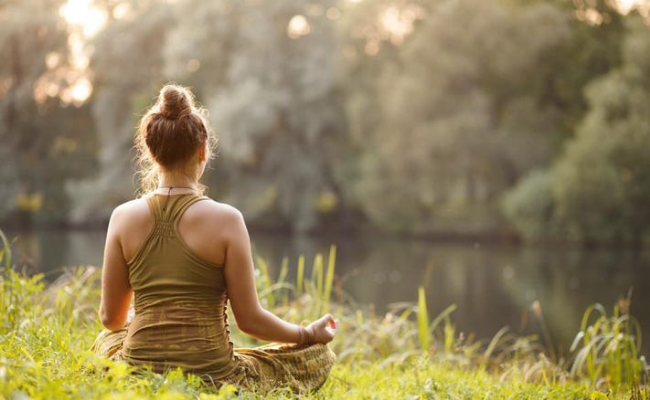
This is in one direction to reduce your worries down to size so you’re aware of them but they don’t get in your technique. Meditation assists you in concentration on your breath and keeps your mind rid of thoughts. When a concerned person sneaks in, you try to reject it and clear your head.
Read More: A Simple Guide To Yoga And Benefits Of Yoga.
Eat a Healthy Diet
Low blood sugar levels, dehydration, or chemicals in refined foods and beverages such as artificial flavorings, artificial colorings, and conservatives may be the reason for mood changes in some people. A high-sugar diet may also affect temperament. If your anxiety deteriorates after eating, check your eating ways. Stay hydrated, remove processed foods, and eat a healthy diet rich in complex carbohydrates, fruits and vegetables, and lean proteins.
Try Aromatherapy
Aromatherapy uses fragrant vital oils to promote health and welfare. The oils may be absorbed directly or added to a warm bath or disseminator.
Studies have shown that aromatherapy:
- Assists you relax
- Helps you sleep
- Promote mood
- Decrease heart rate and blood pressure
Some vital oils used to relieve anxiety are:
- Bergamot
- Lavender
- Clary sage
- Grapefruit
- Ylang Ylang
Shop online for bergamot, lavender, grapefruit, ylang-ylang, and clary sage essential oils.
Drink Chamomile Tea
A cup of chamomile tea is one of the general home remedies for anxiety. A 2009 study trusted source showed chamomile may also be a strong ally against universal anxiety disorder. The study discovered people who took German chamomile capsules had a higher reduction in scores for tests that evaluate anxiety symptoms than those who were given an antidote.

Massage
Therapists rub, press, push muscles and squeeze and other soft tissues with their hands, fingers, forearms, elbows, and often even their feet. It can help with painful muscles and other problems, and it may help relieve anxiety and stress.
Vitamin B12
Vitamin B12 is a mixture that helps maintain your brain working and thinking well. When your body doesn’t get enough vitamin B12, there is a chance that you might undergo anxiety, fatigue, depression, or even delusions. But your body can’t generate this vitamin on its own. You have to get more of it through the foods you eat, specifically dairy and meats, or by taking supplements.
Wake up 15 Minutes Early
Like the majority of anxious people, you’re possibly running around in the morning and yelling at everyone in your wake, “Be quick! We’re going to be late!” Go smooth, and fix yourself up for a calm day in front. If you start to worry about the bucket list, take a deep breath and think: There is sufficient time.
Visit a Social Get-Together (Even Though You Don’t Want To)
If you’re inclined to social anxiety, it’s crucial to produce time for socialization. It’s cool to be an introvert or loner, but be conscious that we live in a universe that rotates around connecting with others. Socialization is the easiest way and natural remedy for anxiety.
Final Words
The fundamental to making the actions above work is regularity. You’re the boss man and expert on your life. Select the ones that work best for you, and give them a shot. Control your anxiety so it doesn’t control you.
If you’re feeling anxious, trying the above home remedies for anxiety may help calm you down. Keep in mind, natural remedies may help relieve anxiety, but they don’t exchange professional help. Do not let the body soreness take the life out of you. Greater anxiety may need therapy or instruction medication.







